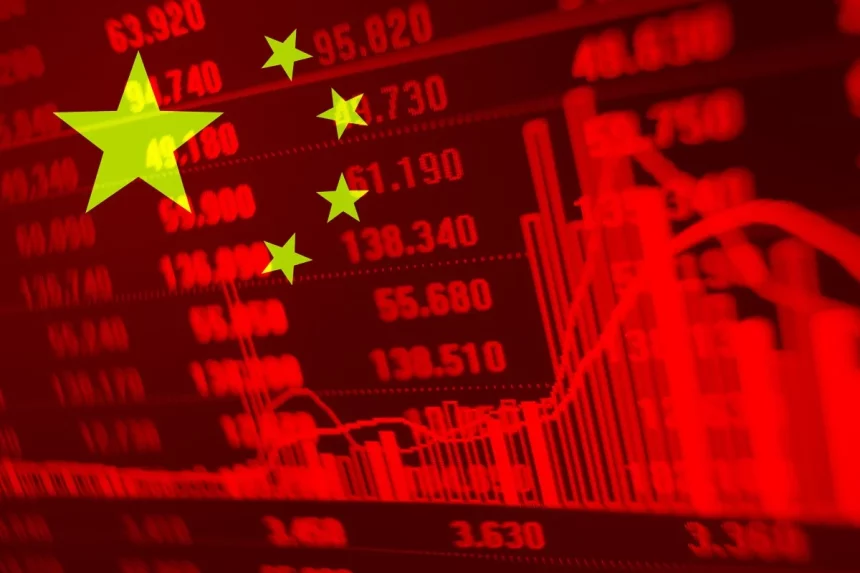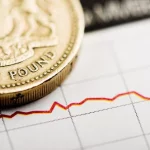Asian stock markets held back as fears of rate hikes outweighed excitement about Chinese GDP. Optimism is restrained.
Asian stock market’s optimism outweighed the Chinese GDP
On Tuesday, the majority of Asian stock markets traded in a flat to the low band. As worries about increasing U.S. interest rates mostly outweighed hope for a higher-than-expected Chinese economy.
After statistics revealed that the Chinese economy expanded by a larger-than-expected 4.5% in the initial quarter of 2023. Partly due to the removal of anti-COVID regulations earlier in the year. China’s Shanghai Shenzhen CSI 300 and Shanghai Composite indices traded flat.
Diagram of the China Economic Surprise Index
Source data: Bloomberg
The Economic Surprise Index for China this month reached its highest mark of at least until 2014. Highlighting the positive ripples of economic openness. This comes after a streak of encouraging China statistics in recent weeks.
Although the number indicated that the nation’s economy was on the heal. Other statistics reflected an unequal recovery. For the second consecutive month, industrial production fell shy of forecasts in March. Indicating the enormous manufacturing sector’s difficulty in rebounding from COVID-era low points.
Broader Asian stock markets traded low to flat
The Hang Seng index in Hong Kong fell 0.8%, with real estate companies among the poorest performers for the day. As statistics revealed that, in spite of the relaxation of anti-COVID rules. Investment in China’s real estate industry declined in the first quarter.
However, robust retail sales statistics showed that the Chinese economy is generally on route to a consumption-driven rebound. Which is expected to be advantageous for exporters to the nation in the near future.
While anxiety over rising U.S. interest rates persisted, the majority of regional Asian markets traded in a flat to low area. The Philippine Composite Index topped losses in Southeast Asia with a 0.6% decrease, while South Korea’s KOSPI dipped by 0.3%.
The Reserve Bank of Australia’s meeting minutes from April revealed that the bank may still raise rates further. Despite having announced a halt earlier in the month, which caused Australia’s ASX 200 index to decline by 0.3%.
Growing skepticism about when the Federal Reserve would stop its current run of rate hikes hurt the overall mood. Investors are anticipating a roughly 90% likelihood of a 25 basis point (bps) increase in May. With a 10% possibility of a further 25 bps increase in June, according to Fed Fund futures prices.
After the new BoJ Governor, Kazuo Ueda made it apparent that the bank is going to be clear in maintaining interest rates’ ultra-low stance. The Nikkei 225 index in Japan increased 0.6% and was the top performance for the day.
As Fed fears increase, Asia FX declines, and China’s GDP provides no assistance.
On Tuesday, the majority of Asian currencies traded in a thin-to-low zone as traders remained cautious of risky assets. Despite stronger-than-expected Chinese growth statistics and mounting worries about the direction of U.S. monetary policy.
After the nation removed most anti-COVID rules earlier this year, statistics revealed that the GDP grew a larger-than-expected 4.5% in the Q1 of 2023. Which led to a small increase in the value of the Chinese yuan.
The Japanese yen was flat after plunging dramatically overnight. The new governor of the BoJ, Kazuo Ueda, added to the pressure by declaring that the bank’s ultra-loose policy will continue.
The Australian dollar increased 0.2% on the day, making it one of the deviations. As the Reserve Bank’s most recent meeting notes indicated that the bank may still raise interest rates further. Despite a modest decline on Tuesday, the dollar index and dollar index futures had made significant gains over the previous two sessions.
Given that it reduces the difference between yields on riskier and low-risk investments. The likelihood of rising U.S. interest rates is bad news for Asian currencies. Agustn Carstens, the governor of the Bank of International Settlements, also issued a warning. Saying that rising inflation and increasing dangers of financial turmoil may need interest rates to remain elevated for a long.










